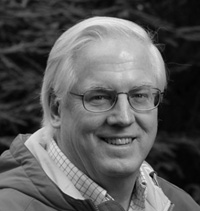
Professor
Center of Excellence for Aeronautics and Astronautics
Dr. Brian J. Cantwell is the Edward C. Wells Professor in the school of engineering at Stanford University. He received the B.A. and B.S. from the University of Notre Dame in 1967 and 1968. Following graduation he worked at the NASA Johnson Space Center where he participated in ground testing of the LEM ascent engine for the Apollo program. In January 1969 he joined the U.S. Army and served on active duty for two years. During military service in Belgium he received the diploma from the Von Karman Institute for Fluid Dynamics. After military service, he attended graduate school at Caltech completing the MS in 1971 and the PhD in 1976. He has been a member of the Stanford faculty since 1978 and served as department chairman from 2001 to 2008.
In his research, Professor Cantwell uses similarity methods to investigate the space-time structure of turbulent flow. Research topics have included experimental and numerical investigations of variable density and reacting flows. Since 1998 his research has been concentrated on studies of the mixing and combustion between a flowing oxidizer and liquid droplets entrained from the surface of a melting fuel. This research has led to the identification of a new class of very fast burning fuels for application to hybrid propulsion. In the last few years he has also studied the use of nitrous oxide as a monopropellant for small space thrusters. This work has led to a new area of interdisciplinary study that joins propulsion research with environmental biotechnology. In this research the focus is on terrestrial applications where energy is derived from waste nitrogen. His teaching duties have included courses on aircraft and rocket propulsion, compressible flow, turbulence, similarity methods and experimentation. He was a member and deputy chairman of the AGARD Fluid Dynamics Panel from 1989 to 1997 supporting the aerospace technology needs of NATO. From 1994 to 2008 he served as a member of an Executive Independent Review Team overseeing the development of the F119, F135 and F136 engines for the Air Force Raptor and Lighting II fighters. He was given the excellence in teaching award by the Stanford student chapter of the AIAA in 1984 and 1988. He is a Fellow of the American Physical Society, a Fellow of the AIAA, a Fellow of the Royal Aeronautical Society a member of Sigma Xi and a member of the National Academy of Engineering. He is the author of four books including a textbook on symmetry analysis published by Cambridge Press in September 2002.
Professor Cantwell's research interests are in the area of turbulent flow. Recent work has centered in three areas: the direct numerical simulation of turbulent shear flows, theoretical studies of the fine-scale structure of turbulence, and experimental measurements of turbulent structure in flames. Experimental studies include the development of particle-tracking methods for measuring velocity fields in unsteady flames and variable density jets. Research in turbulence simulation includes the development of spectral methods for simulating vortex rings, the development of topological methods for interpreting complex fields of data, and simulations of high Reynolds number compressible and incompressible wakes. Theoretical studies include predictions of the asymptotic behavior of drifting vortex pairs and vortex rings and use of group theoretical methods to study the nonlinear dynamics of turbulent fine-scale motions. Current projects include studies of fast-burning fuels for hybrid propulsion and decomposition of nitrous oxide for space propulsion.